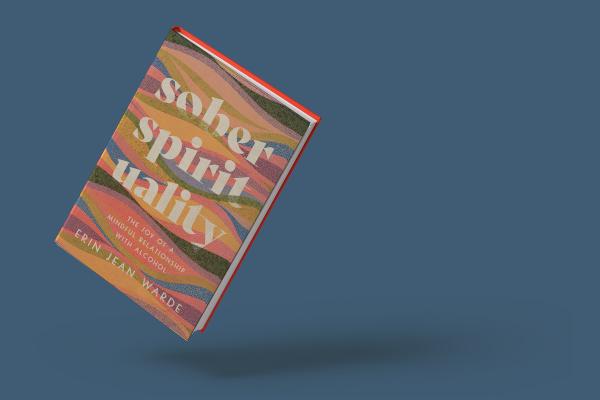SOBER SPIRITUALITY by Erin Jean Warde is ultimately an invitation for readers to ask themselves, “How do I want to be in a relationship with alcohol?” Warde, an ordained Episcopal priest, spiritual director, and sobriety coach, asked this question of herself years ago. She ultimately chose sobriety but realizes that won’t be where everyone lands. And Warde also wants the whole church, not just individuals, to engage this question.
Because, according to Warde, the church’s current relationship with alcohol is pretty toxic — especially in progressive churches. Progressive denominations often work to distinguish themselves from fundamentalism and much of white evangelicalism, communicating, “Yes, we’re Christian, but not that type of Christian” — not the type that is hostile to immigrants and bars women and LGBTQ people from the pulpit.
But one of the ways progressive churches have signaled this distinction, Warde argues, is harmful: “by illustrating how much they drink or that they drink at church.” Events like “Beer & Hymns” or “Theology on Tap” come to mind. This type of laid-back programming quickly communicates to newcomers that the host church isn’t dogmatic or old-fashioned. But it sends a different message to people who are sober or sober curious. “The common refrain of ‘all are welcome’ must ring true when a person changes their relationship with alcohol,” Warde writes.
Warde is a generous and gracious guide for people — and churches — trying to have a more mindful relationship with alcohol. She explains how churches can be more inclusive by rethinking communion and looking hard at how we talk from the pulpit about drinking. But Sober Spirituality speaks directly to people who are unhappy with their current relationship to alcohol. To them, Warde offers a message devoid of shame and full of hope, saying, “Mindfulness around alcohol is a return to how God made us for joy.”
Warde’s definition of joy is robust — and complicated. “During some of the most joyous experiences in the Bible, terror and amazement seize the recipients of good news,” she writes. “There is terror because the news threatens to change them, and there is amazement because of what might be possible if they are changed.”
The bad news about alcohol, which Warde articulates thoroughly, is that it helps usher in liver disease, traffic fatalities, anxiety, depression, heart disease, and cancer. And the bad news about quitting alcohol consumption is that it is very, very hard — not just because alcohol is addictive, but also because alcohol plays such a big part in our dinner parties and happy hours and weddings and funerals and breakups and anniversaries, and, yes, our churches.
But the good news about quitting alcohol, according to Warde, immensely outweighs the bad. Alcohol is, quite literally, a depressant. That’s why it may seem like it temporarily numbs the pain in our lives. But as Warde points out, it also numbs the joy, empathy, and connection to God. She credits her choice to quit drinking as leading to the “greatest spiritual awakening [she] had ever known.” In Sober Spirituality, she shares the good news of “the abundant life that comes when we let Jesus awaken us to something other than a life of numbness.”

Got something to say about what you're reading? We value your feedback!







